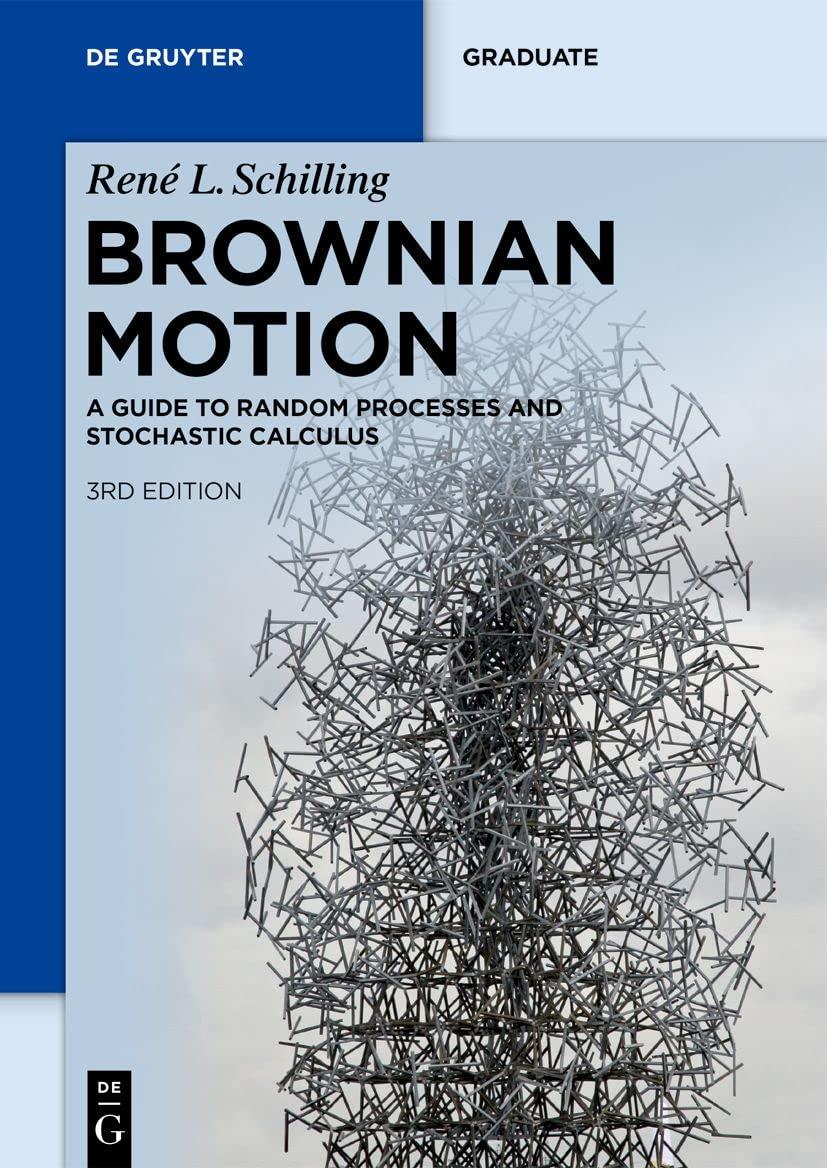Let (left(B_{t}ight)_{t geqslant 0}) be a (mathrm{BM}^{1}). The solution of the (mathrm{SDE}) [d X_{t}=-beta X_{t} d t+sigma
Question:
Let \(\left(B_{t}ight)_{t \geqslant 0}\) be a \(\mathrm{BM}^{1}\). The solution of the \(\mathrm{SDE}\)
\[d X_{t}=-\beta X_{t} d t+\sigma d B_{t}, \quad X_{0}=\xi\]
with \(\beta>0\) and \(\sigma \in \mathbb{R}\) is an Ornstein-Uhlenbeck process.
a) Find \(X_{t}\) explicitly.
b) Determine the distribution of \(X_{t}\). Is \(\left(X_{t}ight)_{t \geqslant 0}\) a Gaussian process? Find the correlation function \(C(s, t)=\mathbb{E} X_{S} X_{t}, s, t \geqslant 0\).
c) Determine the asymptotic distribution \(\mu\) of \(X_{t}\) as \(t ightarrow \infty\).
d) Assume that the initial condition \(\xi\) is a random variable which is independent of \(\left(B_{t}ight)_{t \geqslant 0}\), and assume that \(\xi \sim \mu\) with \(\mu\) from above. Find the characteristic function of \(\left(X_{t_{1}}, \ldots, X_{t_{n}}ight)\) for all \(0 \leqslant t_{1} e) Show that the process \(\left(U_{t}ight)_{t \geqslant 0}\), where \(U_{t}:=\frac{\sigma}{\sqrt{2 \beta}} e^{-\beta t} B\left(e^{2 \beta t}-1ight)\), has the same finite dimensional distributions as \(\left(X_{t}ight)_{t \geqslant 0}\) with initial condition \(X_{0}=0\). Compare this with the stationary OU process from Problem 2.11.
Step by Step Answer:

Brownian Motion A Guide To Random Processes And Stochastic Calculus De Gruyter Textbook
ISBN: 9783110741254
3rd Edition
Authors: René L. Schilling, Björn Böttcher





